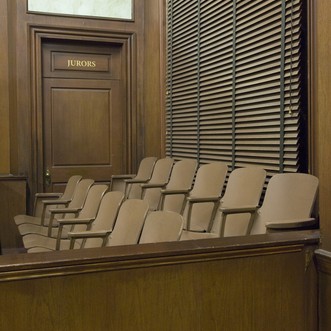Baked cookies and no-sidebars rule are part of federal judge's jury-centric approach to trials

Image from Shutterstock.
U.S. District Judge Mark Bennett of Sioux City, Iowa, says he’s taking a WWJW approach to jury trials, defining the acronym to mean “What Would Jurors Want?”
Bennett says he knows of only one published juror bill of rights, posted on the Arizona Supreme Court website. Now he’s proposing his own juror bill of rights in an upcoming article for the Arizona State Law Review, the Atlantic reports.
According to the article, Bennett’s proposals address everything from fresh baked cookies for jurors to “substantive legal changes like clear jury instructions, interim summaries of arguments, and the elimination of most of the lawyerly gamesmanship that interferes with the timely administration of trials.”
Bennett discusses these five rights for jurors:
1) The right not to have their time wasted with “unnecessary, cumulative and excessive evidence.”
Bennett says he adopted a “just say no to sidebars” policy in a case 15 years ago after several “ridiculous sidebars” requested by Chicago litigators. Lawyers instead meet with Bennett to resolve problems before jurors are brought into the courtroom each day or after they leave each day. The no-sidebars rule is not reciprocal, Bennett says; he will request a sidebar to prevent error or move the trial along.
Bennett also says trials should start and end on time each day, and judges should exercise strong oversight to eliminate excessive evidence. Bennett has found that jurors prefer a schedule of 8:30 a.m. to 2:30 p.m., with two 20-minute stretch breaks and no lunch.
2) The right to be told during jury selection in civil trials exactly how long a trial will last, minus the time for deliberations. Bennett and his law clerk use an online chess clock to measure time limits during the trial.
3) The right to have plain-English jury instructions before opening statements. Bennett’s instructions “come complete with a meaningful table of content, bullet points and white space.”
4) The right to have their judge “thoughtfully consider innovations that enhance their experience and the fairness of the trial.”
Bennett recalls the time early in his career as judge when a juror raised her hand and asked why all the trial participants had water, but the jurors did not. He decided that jurors should be able to bring in any beverage, as long as they didn’t contain alcohol. Years later, during a technology upgrade, he had cup holders installed in the courtroom.
His court also allows deliberating jurors to access evidence electronically without the need for help from court personnel. He also uses a Power Point presentation during voir dire that includes a cartoon about peremptory challenges and a “colorful reasonable doubt chart” in criminal cases.
5) The right to “juror creature comforts.” This includes comfortable seating and nutritious snacks. Bennett bakes cookies for the jurors in trials lasting four days or more.
See also:
ABA Journal: “The Verdict on Juries”
ABAJournal.com: “Training-video sanction for deposition interruptions by Jones Day partner is tossed on appeal”



